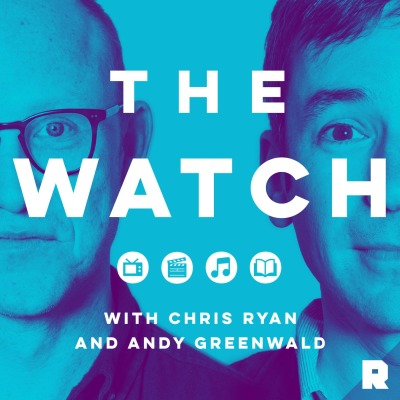'True Detective: Night Country' Could've Been Better
Would 10 episodes have done the trick?
Let's dispense with the obvious:
- Making things is hard.
- I'm not a TV show runner.
- True Detective: Night Country aired on what's still considered the home of the best TV out there.
So clearly, True Detective: Night Country's show runner/writer/director Issa López is doing something right.
But for me, it didn't land. I didn't regret the six hours I spent with the show, but I wanted more. Not just more episodes, but more time with the characters, more insight into what makes them tick, more story.
This take was not unique. And as a result, it prompted an interesting article on The Ringer.

It's an interesting look, both anecdotally and backed up with some interesting data points, at why six-episode runs of shows seem to miss the mark.
I don't think I ever spent much time thinking about how six-episode runs were rare until recently, save for in the U.K. And I know I couldn't accurately place the moment in my lifetime when the standard 20-plus episode season fell out of vogue before reading this article, so there was a lot of good background information presented here.
The article is smart enough to know not to blame the episode count as the cause bur rather highly correlated.
It’s nice that actors today get to play more parts and that not every series needs to be built to last. TV seasons aren’t one-size-fits-all: Different series are suited to different lengths, and it would be silly to stretch six episodes’ worth of story onto an eight- or 10-episode frame. Historically speaking, though, six-episode seasons have tended to be lower-rated than longer seasons, with more deflating finales. With that track record in mind, you’d be justified in looking slightly askance at the prospect of a six-episode season, relative to more extended alternatives.
For me, as it relates to True Detective: Night Country, the biggest disappointment of all was that López seems to bear the responsibility for there only being six episodes. The article quotes an interview she gave to Polygon:
In my initial conversation with HBO about it, they were like, “How do you feel about True Detective?” and I told them what I had in mind. And they said, “We love it. 10 episodes?” And I was like, “No,” because I wanted to direct every one of them, you know? And as time went by there were several conversations where they were like, “Seven?” and I was like “No, six.” It was always six. It is tight for all the terrain we cover in the series, but at the same time, I am a firm believer in economy and saying what’s necessary and never overstaying your welcome, leaving people wanting more. So it was a perfect size, I think.
It's hard to argue with a creator saying she's satisfied with what she got. She clearly was backed into a corner and forced to take only six episodes, which honestly, is kind of nice to hear.
But then it's on her to deliver a story that fits within those six episodes, and I think it fell short. The criticism felt more justified as a critique of the creative judgment when I read that quote. My assumption had been that a fuller story existed and got hammered and cut away at until this was the six-episode version we got, a sort of Frankenstein of edits and plot points cobbled together in a way that made the most sense for the time allotted.
And I was reflexively angry on her behalf. I had read coverage throughout that told how she had developed Night Country separately, not as a part of the extended True Detective Cinematic Universe. I rolled my eyes at the fan response to mostly unsatisfying breadcrumbs dropped throughout the season to harken back to Season 1, easily the most beloved of the entire series. Some fans seemed to want it to make more sense, when it felt pretty obvious that these details were dropped in for the sake of folding the story into that TDCU, not because they'd organically been there all along. I wished she hadn't felt the need to do that. Detecting, truly, in one of the harshest yet most beautiful places on Earth can be (and should be and is) enough. Great storytelling possibilities abound.
Though I can't fault her rationale in her quote. If I was folding my original story into an existing property, I'd probably want to direct every episode of it, too. I'd want the thing to be mine, in a way that it probably never felt after she agreed to stick True Detective in front of its name.
But the last part of that quote gets me.
It was always six. It is tight for all the terrain we cover in the series, but at the same time, I am a firm believer in economy and saying what’s necessary and never overstaying your welcome, leaving people wanting more. So it was a perfect size, I think.
Her logic is flawless, unimpeachable. I love the idea of economy (who wants bloat for bloat's sake?) and not overstaying a welcome to leave people wanting more.
But six wasn't the perfect size, not for the story that we got. The notion that "six was the perfect size" left people wanting more in ways that aren't satisfying, in ways that creators probably hope to avoid.
I choose to believe that she meant "leaving people wanting more" to mean the world created by the show was so rich, so developed, so lived in, that viewers were sad to see it end, sad not to get more time in the place.
The "wanting more" that I felt after the show wrapped wasn't that. It was that I needed more to feel a baseline level of satisfaction. It was because I felt like I hadn't been given enough, not simply because I didn't want to leave. And those are different things—one bad and one good, respectively.
We landed on the bad side of that difference, and that was avoidable, if her quote is to be the final word on the matter. It implies that the story we got is the one she always intended to tell. I hope, for her sake as the creator, that's true.
I just can't say it's one I enjoyed as much as I hoped I would.
For more on the finale of True Detective: Night Country, check out Andy and Chris on The Watch podcast, as they articulate a lot of what I was feeling when it comes to frustrations with the storytelling.



Comments